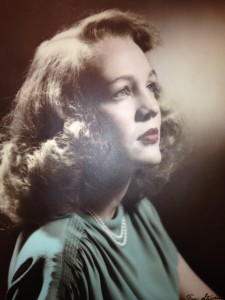
by Diane Masson | Nov 1, 2015

You know who they once were better than anyone! Be the best advocate you can be!
Here are some tough statements that family members can hear at an Alzheimer’s or dementia care conference for their loved one (who might be residing in assisted living, memory care or skilled nursing care):
- She can’t direct her own care…
- Is regularly disoriented…
- Needs full help with bathing and dressing…
- She can become frustrated…
- Can be resistant to care…
- Does not always remember to use her walker…
It can proceed into an in-depth conversation about the ability of your loved one’s communication:
- She is not very verbal…
- She has improved in the last four months from not speaking at all (because she was still coming off of the psychotropic medications) to being a little more verbal.
- The staff has to use phrases or questions that are seven words or less to create less confusion for her.
- The staffs’ goal is to elicit a “yes” or “no” response, so she can make choices.
Then a group discussion can proceed about who she can still recognize and if she can still call anyone by name (this is tough one):
- Does she recognize you?
- She thinks her daughter is her sister.
How much food is or is not consumed?
Our family has experienced witnessing continual weight loss of my mother-in-law for 10 months. She is eating 50% of her food, but can pop out of her chair and start wandering sporadically while dining. She walks almost continually. The staff have problem solved this by feeding her in the country kitchen instead of the dining room to increase her food intake.
What should you ask in a care conference? Don’t be intimidated; no one knows your loved one better than you. Be his or her advocate to the best of your ability.
- Find out exactly what medication they take and why. Sometimes they were given a medication like a psychotropic in the hospital and no one is paying attention to the fact it is not necessary anymore.
- How much exercise or movement do they experience? Staying mobile is important.
- Inquire about live entertainment. Your loved one may be refusing to go to live entertainment and you know they love music. The only reason they may be refusing is because they can’t HEAR the caregiver asking them to go. Maybe the caregiver needs to speak up or…
- Ask about music therapy. It can be very affective for dementia and Alzheimer’s. If they tried it once and it was refused, try again. Every day is a new day. Seniors with dementia (such as my mom) can be more receptive and oriented in the morning.
- How much food do they eat? Maybe they are not eating because they have lost teeth (this happened to my mom)? Food adjustments can be made.
Is there anyone else out there dealing with a parent who has dementia? It is not easy. What tips can you share?
Diane Masson advocated for her mom who had dementia for nine years and her mother-in-law currently lives in a memory care community. Diane writes a Tips2Seniors blog every week and published a book to take the guess work out selecting senior housing before, during or after a health care crisis, “Your Senior Housing Options.” She has worked in senior housing for 17 years and her first book, “Senior Housing Marketing – How to Increase Your Occupancy and Stay Full,” is helping senior housing professionals on a nationwide basis.

by Diane Masson | Oct 20, 2013
 An adult child or power of attorney plays a crucial role at a care conference. You can literally hold the pieces of the puzzle that an assisted living, skilled nursing care or memory care need in order to enhance the lifestyle of the resident.
An adult child or power of attorney plays a crucial role at a care conference. You can literally hold the pieces of the puzzle that an assisted living, skilled nursing care or memory care need in order to enhance the lifestyle of the resident.
No one alive knows my mom better than me. She cannot always advocate on her own behalf, because she has vascular dementia. If I asked her, “What would you rather have for dinner, prime rib or salmon?” My mom would say, “Diane you know what I like, you decide.” Even with her dementia, she knows that I will select her favorite choices from the past.
Recently, at my mom’s care conference in skilled nursing care a puzzle started to come together. My mom was having episodes of greater confusion. It might be three days in row and then she would be fine again. Was my mom’s dementia getting worse or was it something else? Would she need to start a new drug?
As we were brainstorming possibilities, I remembered how lack of sleep could intensive my mom’s dementia in the past. We figured out that the bed alarm of some of her recent roommates was affecting her sleep. When she experienced less sleep, then she would have episodes of greater delusion during the day.
It was an aha moment, so now they are going to focus on roommates who don’t need constant alarms going off. Hopefully my mom will improve. As a Boomer child, I have to be willing to accept that my mom’s dementia is getting worse, but maybe my advocacy can continue to help improve her quality of life for now.
Please share your success, failures or comment below to join the conversation and interact with other senior living professionals on what is currently being effective to increase occupancy on a nationwide basis.
Diane Twohy Masson is the author of “Senior Housing Marketing – How to Increase Your Occupancy and Stay Full,” available at Amazon.com with a 5-star rating. The book is required reading at George Mason University as a part of its marketing curriculum. Within this book, the author developed a sales & marketing method with 12 keys to help senior living providers increase their occupancy. Masson developed this expertise as a marketing consultant, sought-after blogger for senior housing and a regional marketing director of continuing care retirement communities in several markets. She has also been a corporate director of sales and a mystery shopper for independent living, assisted living, memory care and skilled care nursing communities in multiple states. Most recently Masson was recruited to consult for two debt-free Continuing Care Retirement Communities in Southern California – Freedom Village in Lake Forest and The Village in Hemet, California. Interestingly, this career started when she was looking for a place for her own mom and helped her loved one transition through three levels of care.
© Marketing 2 Seniors| Diane Twohy Masson 2013 All Rights Reserved. No part of this blog post may be reproduced, copied, modified or adapted, without the prior written consent of the author, unless otherwise indicated for stand-alone materials. You may share this website and or it’s content by any of the following means: 1. Using any of the share icons at the bottom of each page. 2. Providing a back-link or the URL of the content you wish to disseminate. 3. You may quote extracts from the website with attribution to Diane Masson CASP and link https://www.marketing2seniors.net For any other mode of sharing, please contact the author Diane Masson.


